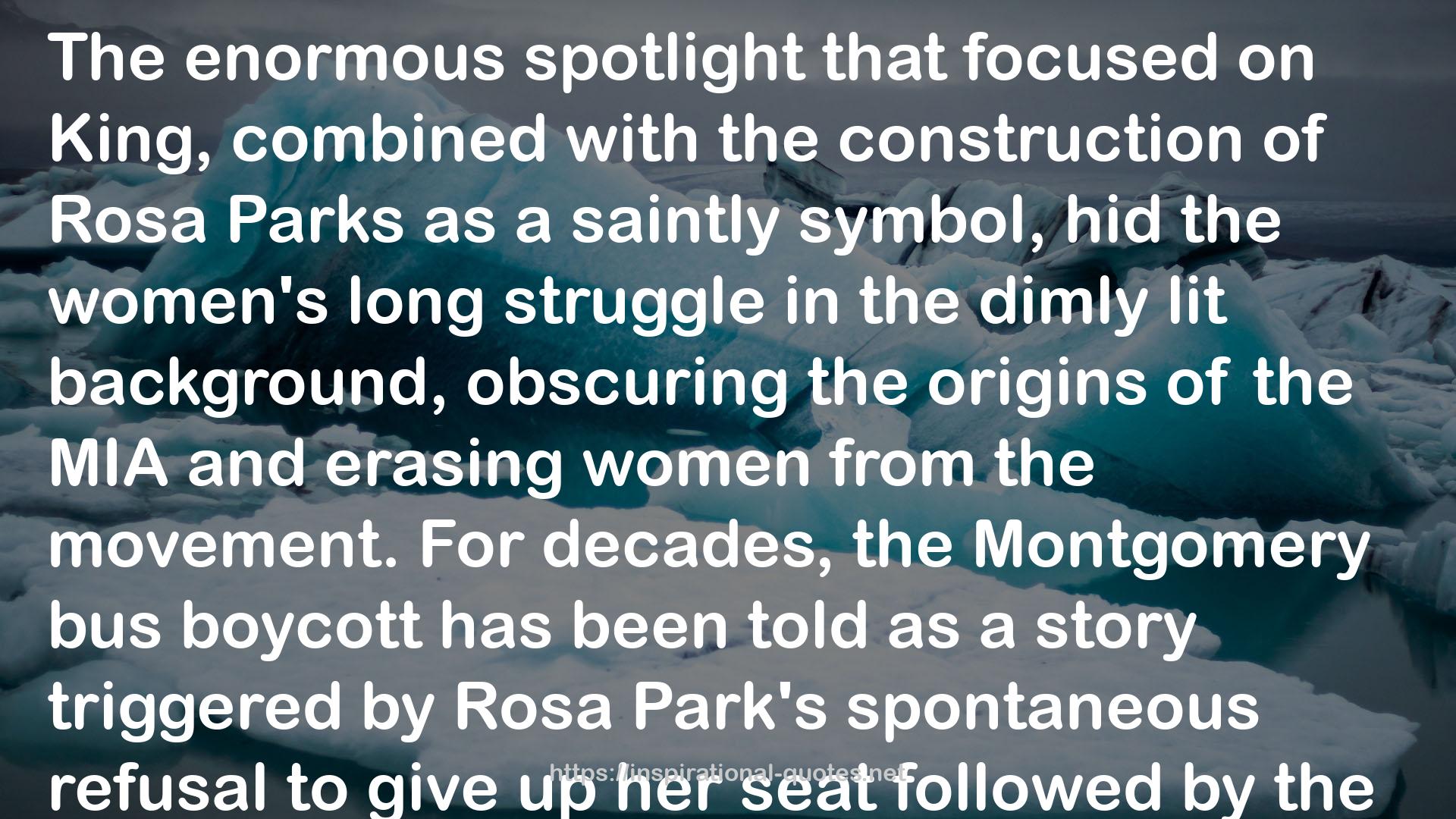" The enormous spotlight that focused on King, combined with the construction of Rosa Parks as a saintly symbol, hid the women's long struggle in the dimly lit background, obscuring the origins of the MIA and erasing women from the movement. For decades, the Montgomery bus boycott has been told as a story triggered by Rosa Park's spontaneous refusal to give up her seat followed by the triumphant leadership of men like Fred Gray, Martin Luther King, Jr., E. D. Nixon, and Ralph Abernathy. While these men had a major impact on the emerging protest movement, it was black women's decade-long struggle against mistreatment and abuse by white bus drivers and police officers that launched the boycott. Without an appreciation for the particular predicaments of black women in the Jim Crow South, it is nearly impossible to understand why thousands of working-class and hundreds of middle-class black women chose to walk rather than ride the bus for 381 days. "
― Danielle L. McGuire , At the Dark End of the Street: Black Women, Rape, and Resistance--A New History of the Civil Rights Movement from Rosa Parks to the Rise of Black Power
